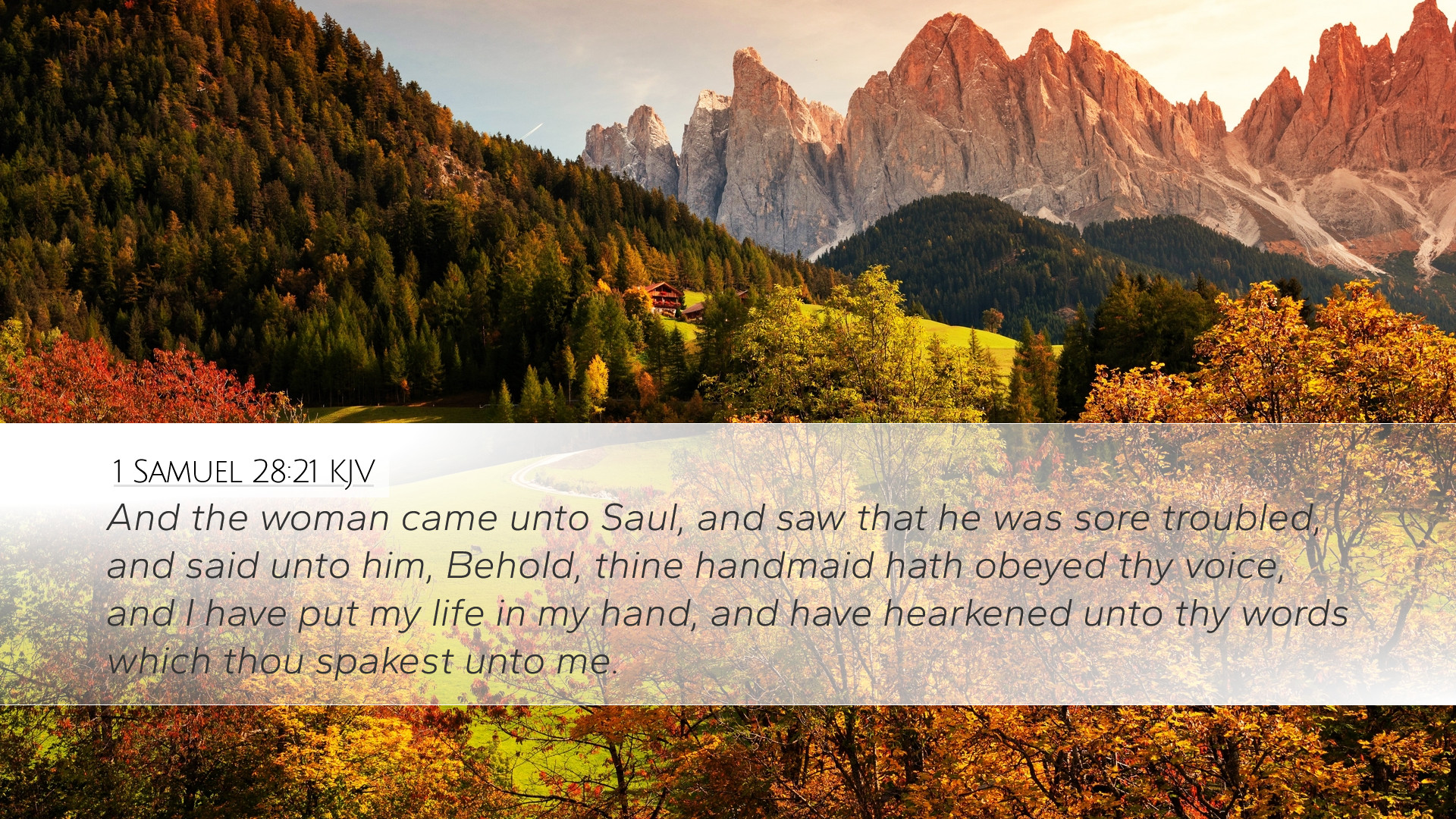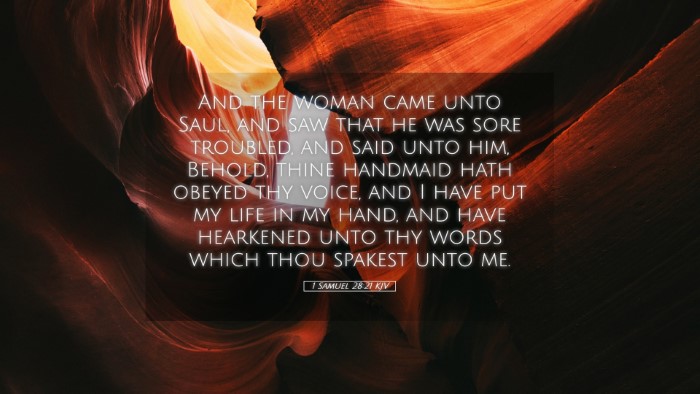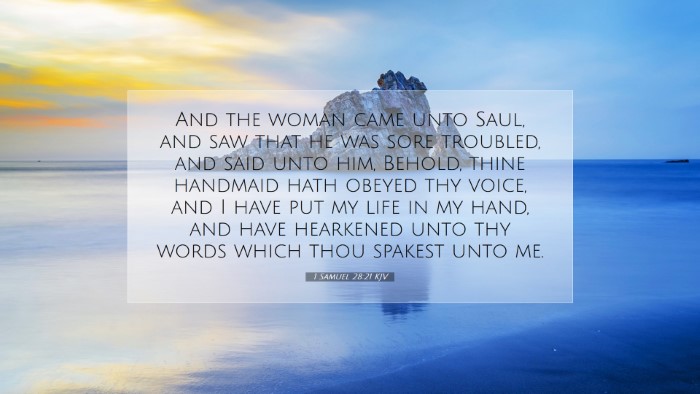Commentary on 1 Samuel 28:21
Text of the Verse: "And the woman came unto Saul, and saw that he was sore troubled, and said unto him, Behold, thine handmaid hath obeyed thy voice, and I have put my life in my hand, and have hearkened unto thy words which thou spakest unto me."
Contextual Background
This verse is set against the backdrop of a politically tumultuous period in Israel's history. Saul, the first king of Israel, is facing imminent defeat against the Philistines. God has withdrawn His support from Saul due to his disobedience, which has left him desperate. Seeking guidance, Saul turns to a medium at Endor, despite having previously expelled such practitioners from the land.
Insights from Commentaries
1. Matthew Henry's Commentary
Matthew Henry highlights Saul's state of desperation and how it leads him to unlawful means for direction. He states that the woman, a medium, relays the tension of the situation, illustrating the dire consequences of Saul's disobedience to God and how it has left him vulnerable. Henry notes her acknowledgment of the danger she faces by engaging with Saul, reflecting on the moral complexities of individuals caught in a web of fear and compliance under a tyrannical power.
- Disobedience and Consequences: Henry emphasizes that Saul’s previous actions led to his predicament, illustrating the principle that turning away from God's guidance can lead individuals to seek help in inappropriate places.
- Desperation: The commentary also discusses Saul's desperation as a profound aspect of human nature when faced with crises—how far one might go when they feel disconnected from divine support.
2. Albert Barnes' Notes on the Bible
Albert Barnes provides an analytical view of the text, focusing on the moral implications of Saul’s request and the woman's compliance. He emphasizes her role in the narrative as both a participant in and a victim of the king’s desperation. Barnes notes that while she obeyed Saul, her actions highlight the futility of seeking guidance from the dead, a practice forbidden by the Law of Moses.
- Conflict of Allegiance: Barnes points to the internal conflict that the medium experiences, being trapped between her obligations to the king and her own moral compass.
- God's Silence: He also underscores the theological significance of God’s silence in this scenario, marking a crucial commentary on leadership and divine judgment.
3. Adam Clarke's Commentary
Adam Clarke delves deeper into the nature of the woman’s fear and sacrifice. He notes that she was aware of the danger she faced in conjuring the spirit of Samuel for Saul. Clarke implies that her actions were not just a matter of obedience but stemmed from a profound understanding of the grave risks involved.
- Fear and Courage: Clarke points out that the woman displayed courage by putting her life at risk to help Saul, showcasing the complex dynamics of fear, loyalty, and defiance.
- Moral Reflection: He further reflects on the moral dilemmas faced by individuals when authority figures impose unjust demands, which is particularly relevant in pastoral care and ethical leadership.
Theological Reflections
This verse invites deeper theological reflections on several fronts: the nature of sin, the consequences of disregarding God’s commandments, and the complex dynamics of power, fear, and moral integrity in times of crisis.
- Sin and Disobedience: The text illustrates the dangers of straying from divine guidance, encouraging a vigilant pursuit of God’s will in all aspects of life.
- Moral Integrity under Pressure: Saul's actions lead the reader to ponder questions of one’s moral integrity when faced with societal pressures or authoritarian governance.
- Seeking God: The text serves as a reminder about the importance of seeking divine direction and the perils of neglecting that need, especially in leadership roles.
Practical Applications
For pastors, students, and theologians, several practical applications emerge from this commentary on 1 Samuel 28:21:
- Leadership Lessons: Leaders should be cautious about their decisions and the potential spiritual ramifications; ethical integrity must guide their actions.
- Pastoral Care: Provide counsel that encourages individuals to seek God directly rather than resorting to questionable means for comfort or guidance.
- Understanding Sin: Teach congregants about the importance of obedience to God's word and the consequences of disregarding divine law.
Conclusion
This verse serves as a poignant reminder of the complexities of human nature and the dire consequences of straying from God’s plan. Insights from public domain commentaries enhance our understanding of the interplay between desperation, faith, and moral integrity, encouraging believers to seek God earnestly, even amidst the trials and tribulations of life.


